Nuclear Medicine Exam Preparation
Nuclear medicine involves the use of low levels of radioactive materials (or tracers) to help diagnose and treat a variety of diseases including many types of cancer, heart disease, kidney and thyroid function, brain abnormalities and other issues.
Unlike others tests that examine the anatomy, nuclear medicine exams determine the cause of the medical problem based on the function or physiological processes of the organ, tissue or bone. The tracers accumulate most where there is a high level of chemical activity, forming hot spots, and giving information that often cannot be obtained in any other way, often saving the patient the necessity of exploratory surgery.
In a nuclear medicine test, the radioactive material is introduced into the body by injection or swallowing, and goes to the site being evaluated where it can detected by the scanner. The materials may take several hours or even days to reach the place where it needs to go, depending on the exam. The actual scanning time can be as little as 20 minutes or several hours and, depending on the exam, may take place over several days. In some cases, nuclear medicine images can be superimposed on images from other technology (such as PET and CT scans) to allow the two images to be “fused” and interpreted on one image for a more complete picture and more accurate diagnosis.
You might feel a slight cold sensation moving up your arm if you are injected with the tracer materials, but it does not lat long. If swallowed, it has almost no taste.
As with all testing that involves radiation, generally, nuclear medicine tests are not recommended for pregnant women, as unborn babies have a greater sensitivity to radiation than children or adults. If you are pregnant, think that you may be pregnant or are breastfeeding, your doctor may order a different type of diagnostic test. If you are planning to become pregnant, ask your doctor how long you should wait after the treatment.
Be sure to leave all jewelry at home.
The radiotracer will be flushed out of your system over time, and you should drink plenty of water to help speed this process. You may be given other instructions by the technologist.
Below are nuclear medicine studies in which specific preparation information is provided:
Gallium Scan
- Our nuclear medicine technologist will instruct you on the special preparations for this exam at the first visit.
HIDA/Gallbladder Scan
- You will need to begin fasting at midnight the night prior to your exam.
- This exam should not follow any prior barium studies on the same day.
Liver/Spleen Scan
- Generally, no special preparation is needed. However, if special preparation is required, your doctor will let you know.
Meckel’s Scan
- You will need to begin fasting at midnight the night prior to your exam.
- This exam should not follow any other barium studies for three days prior to this exam.
Kidney Scan
- This exam should not follow any barium studies for three days prior to the exam.
- It is important to be hydrated for this exam. Drink 24 oz. of fluid prior to the test. However, it is not necessary to have a full bladder for the exam.

